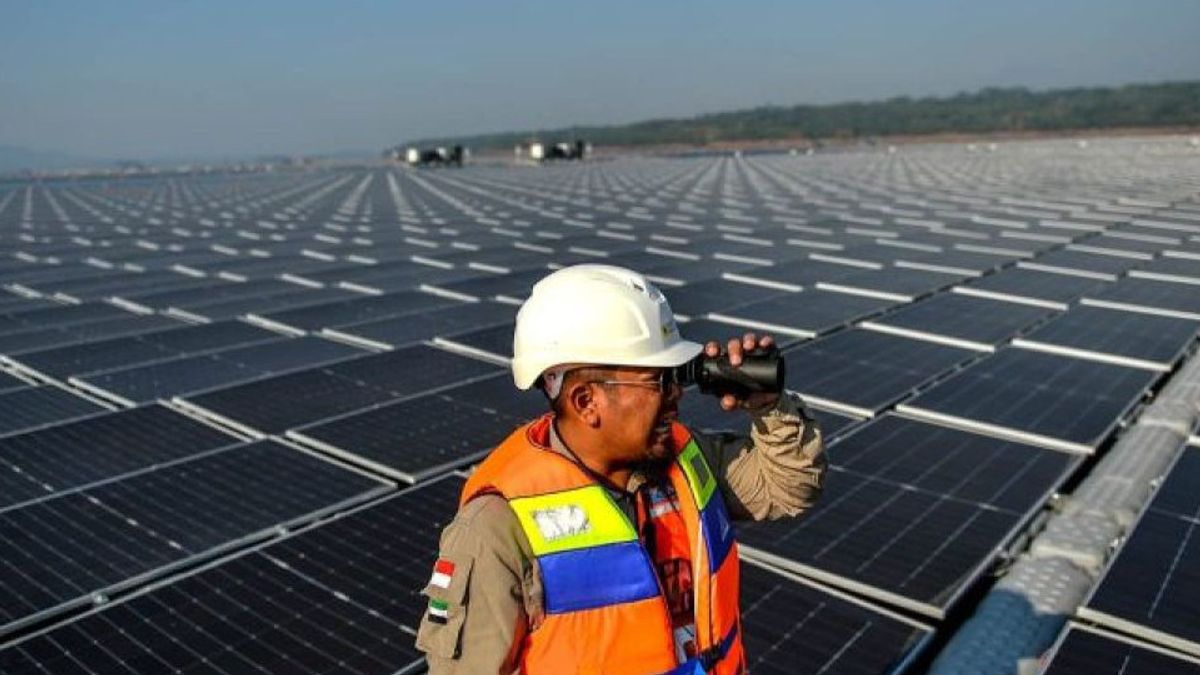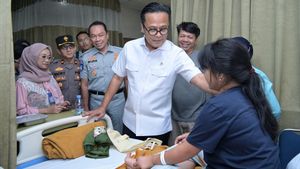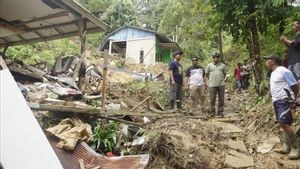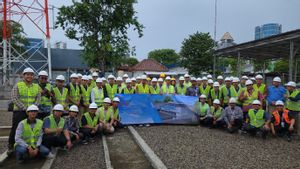JAKARTA - Director General of New, Renewable Energy and Energy Conservation (Dirjen EBTKE) of the Ministry of Energy and Mineral Resources, Eniya Listiani Dewi, said that accelerating the energy transition to clean energy in Indonesia requires large funds.
Therefore, according to him, in his statement in Jakarta, Friday, the energy transition effort requires support from investors to invest and optimize clean energy in the country.
"In realizing the energy transition roadmap in Indonesia, it requires a very large investment. Although the capacity of new and renewable energy generation (EBT) continues to increase, it still requires great costs to accelerate it in meeting national development targets," said Eniya in an international forum entitled "Clean Energy Ministerial (CEM)" which was held in Badung, Bali, quoted from Antara, Friday, May 17.
Eniya said Indonesia had made a policy to create a good ecosystem in clean energy investment, namely by exempting local content requirements for EBT projects, which are funded through loans or foreign grants, which are one of the obstacles to developing EBT in Indonesia.
In addition, he explained that Indonesia has very large EBT resource capital, consisting of various sources.
"The source of EBT power is abundant and spread with the potential to reach 3,680 GW, which can be optimized to supply national energy needs in the future," he said.
Meanwhile, added Eniya, in the energy transition roadmap, Indonesia has set the construction of power plants after 2030 only came from EBT sources.
It is projected that by 2060, the installed capacity of the EBT plant will reach 350 GW with solar power plants (PLTS) significantly increasing from 2030.
SEE ALSO:
"Indonesia will also implement an integrated super grid to provide energy access to the entire community. Super grids will optimize the use of renewable energy sources and maintain the stability of the electricity system," he said.
Then, Eniya added that Indonesia has also focused on innovating in the development of clean energy, including the use of hydrogen, by setting a national hydrogen strategy, which aims to make Indonesia an environmentally friendly producer and hydrogen center in meeting global demand.
"Another innovation is the phase of commercialization of aviation fuel using biodiesel-based J2.4 bioavtur, also developing floating PLTS with large capacities, such as in Cirata (West Java) with a capacity of 193 MW, which is the third largest floating PLTS in the world," he said.
The English, Chinese, Japanese, Arabic, and French versions are automatically generated by the AI. So there may still be inaccuracies in translating, please always see Indonesian as our main language. (system supported by DigitalSiber.id)
















